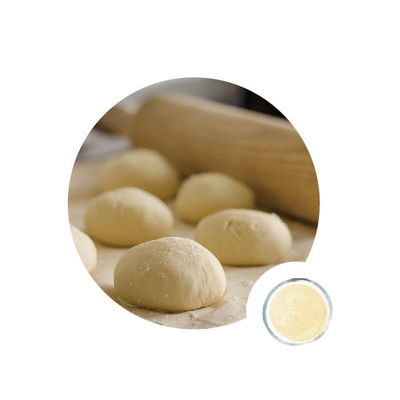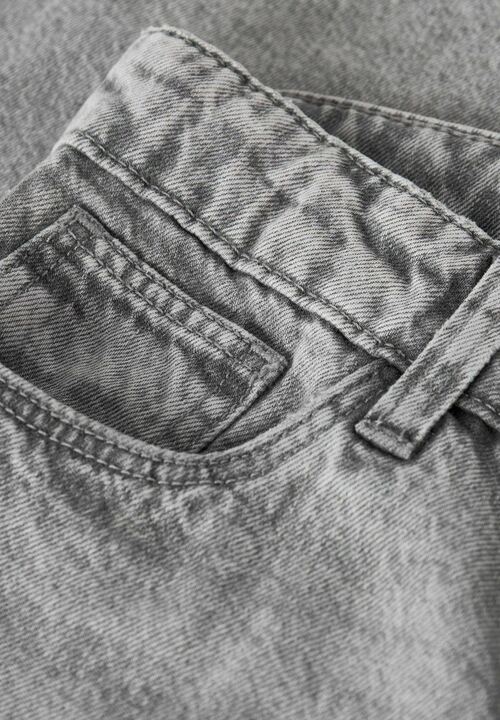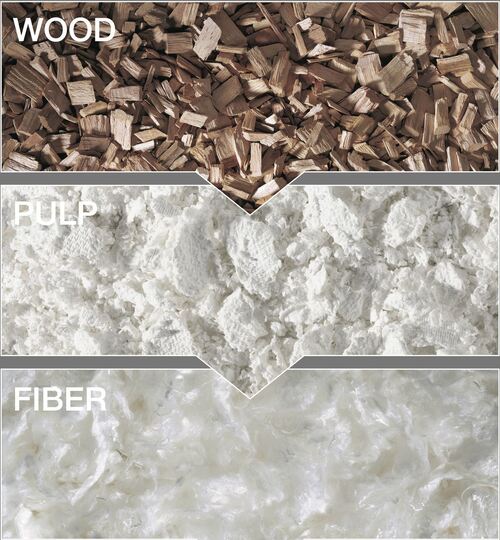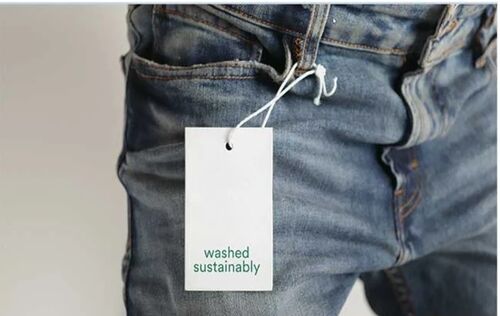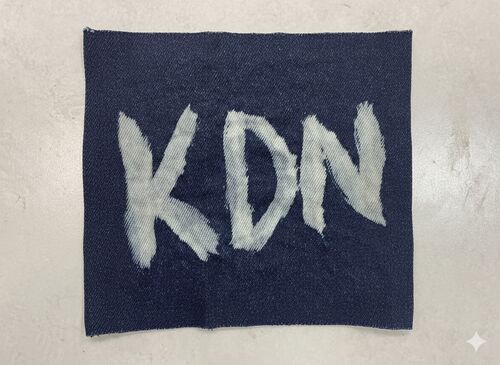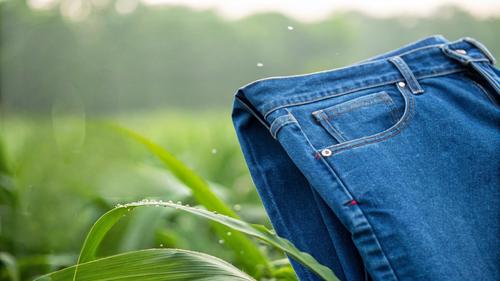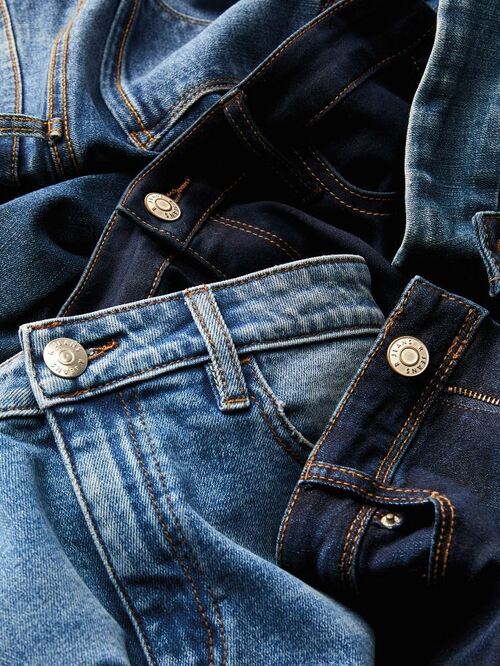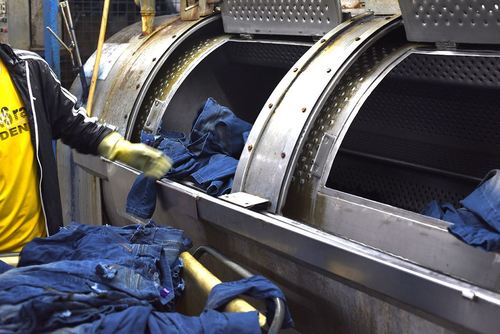Description (D):Discover Denybleach 520, an innovative peroxide-based washing chemical for denim processing. Achieve bright decoloration, reduced steps, and eco-friendly results using advanced textile enzyme technology.
Keywords (K):washing chemicals, textile enzymes, denim bleaching chemicals, peroxide bleaching, detergent enzymes, food enzymes, sustainable denim processing, enzyme washing, chlorine-free bleaching
The denim industry is continuously evolving toward safer, cleaner, and more efficient washing technologies. Traditional denim processing often involves multiple steps such as desizing, enzyme washing, chlorine bleaching, and neutralization—each consuming time, water, energy, and chemicals.Denybleach 520 is a revolutionary innovation in washing chemicals, designed to simplify and transform denim processing while delivering superior decoloration results.
Typical Characteristics:
Appearance: Yellowish red transparent liquid
pH: 4.0 – 7.0
Solubility: Fully soluble in water at all concentrations
Key Advantages Over Traditional Chlorine Bleaching
1. Efficient Low-Temperature Decoloration
Decoloring sulfur black denim with hydrogen peroxide alone is usually difficult and requires high temperatures. With Denybleach 520, effective bleaching can be achieved at 50°C within 5–30 minutes, ensuring better fabric safety and energy efficiency.
2. Brighter and Cleaner Denim Tone
Chlorine bleaching often produces a dull or greyish whiteness. In contrast, peroxide bleaching assisted by Denybleach 520 delivers a brighter, cleaner, and more attractive tone, highly preferred in modern denim fashion.
3. Safer and More Stable Process
Chlorine chemicals are unstable and tend to decompose, especially in summer
Chlorine releases hazardous and irritating gases during processing
Residual chlorine can cause odor problems and fabric yellowing
Denybleach 520, used with hydrogen peroxide, offers a stable, odor-free, and eco-friendlier alternative, aligning with sustainable textile production standards.
Time, Water, and Cost Savings
One of the most significant benefits of Denybleach 520 is that separate desizing is not required. The caustic soda already performs desizing, eliminating two process steps. This results in:
Reduced processing time
Lower water consumption
Energy savings
Overall cost reduction
This makes Denybleach 520 highly attractive for manufacturers using textile enzymes and modern washing chemicals in denim finishing.
Relevance Beyond Denim: Enzyme-Based Industries
While Denybleach 520 is primarily used in denim washing, the shift toward enzyme-driven processes reflects broader industrial trends. Similar efficiency, safety, and sustainability principles apply to:
Textile enzymes for fabric finishing
Detergent enzymes for effective cleaning at lower temperatures
Food enzymes for controlled, eco-friendly processing
The growing adoption of enzyme-compatible washing chemicals highlights the industry’s movement toward greener and more efficient solutions.
Conclusion
Denybleach 520 represents a next-generation denim washing solution, combining performance, safety, and sustainability. By replacing chlorine bleaching with a peroxide-based system, it delivers brighter results, simplifies processing, and supports environmentally responsible textile manufacturing.For companies focusing on washing chemicals, textile enzymes, detergent enzymes, and sustainable processing, Denybleach 520 is a powerful step forward.
Description (D):Celpolish RM700 is a specialized cellulase enzyme for bio-polishing viscose, modal, and lyocell fabrics. It reduces pilling, enhances softness, and supports eco-friendly textile washing chemicals.
Keywords (K):washing chemicals, textile enzymes, detergent enzymes, food enzymes, cellulase enzyme, bio polishing enzyme, manmade cellulose fiber, viscose polishing, modal anti-pilling, sustainable textile enzymes
With the growing use of manmade cellulose fibers (MMCF) such as viscose, modal, and lyocell, fabric producers face increasing challenges related to fuzz formation and pilling. Celpolish RM700, a specialized cellulase enzyme developed by KDN Biotech, is designed to address these issues through efficient and eco-friendly bio-polishing.
As part of the new generation of textile enzymes, Celpolish RM700 offers superior surface refinement while supporting sustainable textile processing.
Product Overview and Characteristics
Celpolish RM700 is supplied as a reddish-brown liquid with a working pH range of 4.5–5.0. It shows excellent compatibility with buffers, non-ionic surfactants, and common washing auxiliaries, making it easy to integrate into existing washing chemicals systems.
This targeted cellulase selectively removes surface micro-fibrils without damaging the fabric structure, ensuring controlled polishing and long-lasting quality.
Key Features and Benefits
Specially designed for bio-polishing of regenerated cellulose fibers such as viscose, modal, and lyocell
Effectively reduces hairiness and fuzz, improving fabric smoothness
Delivers strong anti-pilling performance (≥ Grade 3, Martindale test)
Enhances softness, drape, and surface clarity
Maintains brightness, color depth, and fabric quality after repeated washing
Eco-friendly enzyme solution: renewable, biodegradable, and resource-saving
Compared with traditional washing chemicals, Celpolish RM700 provides a more sustainable and fabric-friendly solution.
Application Flexibility
Celpolish RM700 can be applied before or after dyeing, reducing recycled water requirements. For modal fibers, which have a thicker sheath structure, pre-opening of fibers is recommended to achieve optimal polishing results.
Conclusion
Celpolish RM700 is an effective and eco-friendly cellulase enzyme for bio-polishing manmade cellulose fabrics. It reduces fuzz and pilling, improves softness and surface clarity, and maintains color and fabric quality after repeated washing. With flexible application and sustainable performance, RM700 is a reliable solution for high-quality MMCF finishing.
Description (D):Ecomagic Cleanfade is a textile enzyme–based washing chemical for eco-friendly indigo denim fading. It provides mild bleaching, back-staining cleaning, and energy-saving performance without permanganate or hypochlorite.
Keywords (K):washing chemicals, textile enzymes, detergent enzymes, food enzymes, enzymatic denim washing, eco-friendly bleaching, indigo denim enzymes, sustainable washing chemicals, back-staining cleaning, denim fading enzymes
As the denim industry moves toward greener and safer production, enzymatic washing chemicals are becoming essential. Ecomagic Cleanfade is an advanced textile enzyme–based product developed for the cleaning and mild eco-bleaching of indigo denim at room temperature. It delivers efficient discoloration without relying on potassium permanganate or hypochlorite, making it a truly sustainable solution for modern garment washing.
Enzymatic Technology for Eco-Friendly Denim Processing
Ecomagic Cleanfade is a non-permanganate, non-hypochlorite enzymatic product that gently removes surface indigo while minimizing fiber damage. Unlike conventional bleaching chemicals, this product provides controlled fading and excellent back-staining cleaning, helping garments achieve a cleaner and brighter appearance.
With a pH range of 4.0–6.0 (10% solution) and powder form, Ecomagic Cleanfade works effectively without the need for pH adjustment, simplifying wash recipes and reducing chemical handling. This makes it highly compatible with other washing chemicals and detergent enzymes used in denim processing.
Key Features and Benefits
Ecological discoloring of jeans, supporting sustainable textile production
Effective cleaning of white yarns and pocket linings
Mild bleaching action that preserves elasticity in garments containing elastomer
Works at room temperature, reducing energy consumption
Stronger bleaching performance compared to other sustainable options such as ozone treatments
Delivers best visual effects when applied after stone-washing
These advantages make Ecomagic Cleanfade an ideal choice for manufacturers seeking high performance with a reduced environmental footprint.
Supporting Enzyme-Based Industries
While designed for denim washing, the enzyme-driven philosophy behind Ecomagic Cleanfade aligns closely with advancements in textile enzymes, detergent enzymes, and food enzymes, where efficiency, safety, and sustainability are equally critical. Its controlled action reflects the broader shift toward enzyme-based solutions across multiple industries.
Conclusion
Ecomagic Cleanfade offers a powerful yet gentle approach to denim fading, combining strong bleaching performance with eco-friendly processing. For manufacturers focused on sustainable washing chemicals and enzyme technologies, it represents a reliable and future-ready solution.
Description (D):Ecomagic PPR is an eco-friendly neutralizing agent for textile washing. It removes potassium permanganate and chlorine residues, improves garment contrast, and supports sustainable textile and enzyme-based washing processes.
Keywords (K):washing chemicals, textile enzymes, detergent enzymes, food enzymes, eco-friendly neutralizing agent, potassium permanganate neutralizer, chlorine bleach neutralization, garment washing chemicals, sustainable textile processing, denim washing chemicals
In today’s textile industry, sustainability, safety, and performance are no longer optional—they are essential. Ecomagic PPR is an advanced eco-friendly neutralizing agent designed to eliminate oxidizing residues such as potassium permanganate, chlorine derivatives, and their by-products from garments after bleaching treatments. It plays a vital role in modern washing chemicals, especially in denim and garment finishing processes.
What Makes Ecomagic PPR Different?
Ecomagic PPR is a blend of organic and inorganic compounds, presented as a white to yellowish crystalline powder. It is fully soluble in water at recommended dosages and works effectively at a pH range of 2.0–4.0, with optimal performance around pH 4.
Unlike traditional neutralizers such as hydroxylamine, metabisulfite, or oxalic acid, Ecomagic PPR offers a safer, more efficient, and environmentally responsible alternative. This makes it highly compatible with sustainable textile production and compliant with modern environmental expectations.
Key Features and Benefits
Highly effective neutralization of oxidizing agents used in bleaching
Improves fabric appearance, delivering better contrast and brighter discoloration effects
Eco-friendly formulation that enhances workplace safety and reduces harmful emissions
Fast and reproducible results, ensuring consistent garment quality
Suitable for use alongside textile enzymes and detergent enzymes in advanced washing processes
Compared with conventional washing chemicals, Ecomagic PPR reduces processing risks while improving final garment aesthetics.
A Sustainable Choice for Enzyme-Driven Industries
While primarily used in textiles, the eco-friendly philosophy behind Ecomagic PPR aligns well with industries focused on food enzymes, detergent enzymes, and responsible chemical processing. Its clean performance supports greener manufacturing without compromising efficiency.
Description
High-performance weak cationic silicone softener designed to deliver 25–50% shade deepening on indigo and black denim. Suitable for spray, exhaust, and padding applications, it is a stable, formaldehyde-free solution for modern washing chemicals, textile enzymes, and detergent enzyme systems.
Keywords
washing chemicals, textile enzymes, detergent enzymes, silicone softener, shade deepening agent, denim finishing chemicals, textile finishing auxiliaries, weak cationic silicone, denim washing chemicals, sustainable textile processing, fabric softener for denim
Introduction
In modern textile finishing, washing chemicals play a crucial role in enhancing fabric appearance, color depth, and performance while ensuring process stability and sustainability. Advanced silicone-based finishing agents are increasingly preferred for their ability to improve shade depth, softness, and visual appeal without compromising color fastness.
Among these innovations, weak cationic silicone emulsions have become an essential component in high-performance textile enzyme and finishing systems, particularly for denim and dark-colored fabrics.
Silicone-Based Shade Deepening Technology
This advanced weak cationic silicone softener delivers 25–50% shade deepening across a wide range of fibers and fabric constructions. It produces a clean, attractive bluish tone on indigo denim while enabling ultra-deep black effects on sulfur black and other dark-dyed fabrics.
The product performs consistently on cotton, polyester, polyester/cotton blends, and CVC fabrics, making it suitable for both garment washing plants and dyeing mills.
Key Features and Benefits
25–50% shade deepening without altering dye chemistry
Clean bluish tone on indigo and deep black on sulfur black denim
No adverse effect on color fastness
Hard-water stable with strong acid and alkali resistance
Stable under heavy mechanical shear
Formaldehyde-free for safer and sustainable processing
Weakly cationic nature ensures controlled fabric interaction
These properties make it an ideal companion in washing chemical systems used alongside textile enzymes and detergent enzymes in denim processing.
Compatibility and Sustainability
The product shows excellent compatibility with common washing chemicals, enzyme-based treatments, and detergent systems. It is stable in hard water, though maintaining hardness below 200 ppm is recommended for optimal results.
As the textile industry moves toward eco-conscious manufacturing, formaldehyde-free silicone softeners combined with textile enzymes and detergent enzymes support reduced reprocessing, improved fabric aesthetics, and consistent quality.
Conclusion
Advanced weak cationic silicone softener technology offers an effective solution for shade enhancement and surface finishing in denim and textile processing. With high stability, wide fabric compatibility, and flexible application methods, it remains a key component in modern, sustainable washing chemical systems.
Description
Indifade OXD Conc is a high-concentration, halogen-free, and manganese-free alternative to potassium permanganate for denim washing. Safe, eco-friendly, and easy to apply, it delivers natural discoloration on indigo and black denim. Ideal for users of washing chemicals, textile enzymes, detergent enzymes, and food enzymes.
Keywords
Indifade OXD Conc, denim decoloring agent, PP alternative, potassium permanganate replacement, sustainable washing chemicals, textile enzymes, detergent enzymes, food enzymes, eco-friendly denim finishing, denim spray bleaching, garment washing chemicals, natural denim fading
Introduction
As sustainability and worker safety become industry priorities, denim processors are replacing hazardous chemicals with cleaner solutions. Indifade OXD Conc is a next-generation decoloring agent designed as a safer alternative to potassium permanganate (PP). It delivers controlled, natural fading on indigo and black denim while significantly reducing environmental and operational risks.
Compatible with spraying, brushing, sponge, microfiber glove, and controlled dipping, it supports a wide range of creative denim finishes.
Why Choose Indifade OXD Conc?
Eco-Friendly & Safer Than PP
Free from halogens, manganese, and heavy metals, Indifade OXD Conc improves workplace safety and aligns with sustainable production goals.
Natural, High-Quality Fading
Its advanced formulation produces more uniform and aesthetic discoloration compared to conventional PP spray processes.
Simple & Ready to Use
The product can be diluted with water and applied using existing PP equipment, allowing easy integration into current washing lines.
Application Guidelines
Indifade OXD Conc is applied to desized and pre-washed garments. Mechanical treatments such as brushing or sanding enhance bleaching uniformity.
Application Methods
Spray (most common)
Hand brush
Sponge
Microfiber glove
Controlled dipping
(Avoid skin contact; use protective equipment.)
Sustainability & Enzyme Compatibility
Indifade OXD Conc supports cleaner washing chemical systems and works effectively alongside textile enzymes such as cellulase, amylase, catalase, and protease. This combination helps reduce chemical load, energy use, and water consumption while improving fabric quality and process safety.
Conclusion
Indifade OXD Conc is a modern, eco-conscious alternative to potassium permanganate, offering safe handling, natural fading, and operational simplicity. Its compatibility with enzyme-based processing makes it an ideal choice for denim laundries and garment manufacturers committed to sustainable production using advanced washing chemicals and enzymes.
Description
Stonezyme WL is a new-generation neutral cellulase enzyme developed for denim washing. It delivers fast abrasion, high contrast, and low staining within 30–60°C, enabling stone-free or stone-reduced washing. Ideal for eco-friendly textile processing and sustainable washing chemical formulations.
Keywords
Stonezyme WL, washing chemicals, textile enzymes, detergent enzymes, neutral cellulase, enzyme for denim washing, enzyme washing, eco-friendly washing agent, garment finishing enzyme, denim enzyme, industrial enzyme, sustainable textile processing
Introduction
In modern textile processing, washing chemicals and textile enzymes are essential for achieving high-quality finishes with reduced environmental impact. Stonezyme WL, developed by KDN Biotech (Shanghai) Co., Ltd., is a next-generation neutral cellulase enzyme designed for denim and casual wear washing. It enables efficient abrasion with low staining while significantly reducing or eliminating pumice stone usage—improving both sustainability and fabric quality.
Innovative Enzymatic Technology
Stonezyme WL combines neutral cellulases, advanced buffer systems, and anti-stain agents to deliver consistent abrasion, balanced grain, and strong contrast while protecting fabric strength. Its wide operating range of 30–60°C and pH 5.5–8.0 ensures stable performance under diverse laundry conditions.
Key Features and Benefits
High abrasion efficiency with excellent cost-performance
Wide temperature (30–60°C) and neutral pH adaptability
Enables stone-free or stone-reduced washing
Balanced graining, high contrast, and low back-staining
Compatible with common washing chemicals and non-ionic surfactants
Environmentally friendly, reducing water, energy, and solid waste
Packaging, Storage & Safety
Packaging: 25 kg paper box
Storage: ≤25°C in sealed containers
Avoid inhalation of enzyme dust; rinse skin or eyes with water if exposed. Refer to MSDS for detailed safety information.
Conclusion
Stonezyme WL offers a high-efficiency, sustainable solution for denim washing. With its wide operating range, stone-free capability, and consistent performance, it stands out among modern washing chemicals and textile enzymes, helping manufacturers achieve premium denim finishes with less energy, less waste, and higher productivity.
Description:Stonezyme SF is a new-generation neutral cellulase enzyme for denim washing, offering high abrasion, low stain, and stone-free processing. Designed for wide temperature and pH ranges, it delivers sustainable, cost-effective performance in washing chemicals and textile enzyme applications.
Keywords:Stonezyme SF, washing chemicals, textile enzymes, detergent enzymes, food enzymes, neutral cellulase, denim washing enzyme, enzyme washing, eco-friendly washing agent, enzyme for denim, garment finishing, KDN Biotech, industrial enzyme, sustainable textile processing
In the fast-evolving world of washing chemicals and textile enzymes, innovation drives efficiency, sustainability, and quality. Stonezyme SF, developed by KDN Biotech (Shanghai) Co., Ltd., represents a breakthrough in neutral cellulase enzyme technology. Engineered for fast abrasion, high contrast, and low staining, it delivers outstanding results in denim washing—while significantly reducing or even eliminating the need for pumice stones.
Advanced Enzymatic Technology
Stonezyme SF is formulated with a new generation of neutral cellulases, enhanced buffer chemicals, and anti-stain agents. This unique combination ensures balanced performance—providing excellent abrasion, acceptable grain, and minimal back-staining, even under mild washing conditions.
Key Features and Benefits
Superior abrasion performance with a highly competitive cost-performance ratio.
Wide temperature range (30–60°C) — performs effectively under various process conditions.
Neutral pH adaptability (5.5–8.0) — compatible with most washing systems.
Stone-free or stone-reduced processing — minimizes pumice stone usage, reducing machine wear and environmental impact.
Optimal operation at 45–55°C — achieves the perfect balance between graining, color contrast, and low staining.
By integrating Stonezyme SF into denim finishing, manufacturers can reduce energy use, simplify processes, and produce high-quality, environmentally friendly garments.
Sustainability and Versatility
Unlike conventional washing chemicals, Stonezyme SF relies on biodegradable enzyme technology. Its ability to function efficiently at low to moderate temperatures contributes to energy savings and environmental sustainability.
While primarily designed for denim finishing, its formulation technology is part of KDN Biotech’s broader enzyme portfolio, which also includes food enzymes and detergent enzymes—all engineered for cleaner, greener manufacturing solutions.
Conclusion
Stonezyme SF combines the latest advancements in neutral cellulase enzyme technology with superior process efficiency. Its wide operating range, cost-effectiveness, and eco-friendly formulation make it a preferred choice in modern textile enzyme applications. By using Stonezyme SF, garment processors can achieve premium denim aesthetics—with less energy, less waste, and more value.
Description:Stonezyme DP6000 is a high-concentration cellulase powder enzyme designed for denim and casual wear washing. Featuring wide pH adaptability, strong abrasion contrast, and excellent low-temperature performance, it offers a sustainable and cost-effective solution for washing chemicals and textile finishing.
Keywords:Stonezyme DP6000, washing chemicals, textile enzymes, detergent enzymes, food enzymes, denim washing enzyme, low temperature enzyme, cellulase powder, KDN Biotech, eco-friendly washing agent, enzyme washing, garment finishing, enzyme formulation, industrial enzymes
In today’s textile industry, washing chemicals and textile enzymes play a crucial role in achieving both sustainability and high-quality finishing. Among them, Stonezyme DP6000, developed by KDN Biotech (Shanghai) Co., Ltd., stands out as a new-generation powder cellulase enzyme designed for denim washing and garment finishing. With its low-temperature activity, high enzyme concentration, and broad pH adaptability, it delivers maximum cost-efficiency and environmental benefits.
Key Features of Stonezyme DP6000
Stonezyme DP6000 is engineered to meet the demanding requirements of denim and casual wear finishing. Below are its remarkable characteristics:
High enzyme concentration — Delivers the best cost-performance ratio for formulators.
Low-temperature activity (20–40°C) — Ensures effective enzyme performance even in energy-saving conditions.
Wide pH adaptability (6.0–7.5) — Ideal for neutral or mild alkaline washing systems.
Strong abrasion contrast — Produces a high 3D effect with minimal color pull.
Excellent strength retention — Maintains fabric durability and texture.
Anti-back staining — Keeps washed garments clean and bright.
These benefits make Stonezyme DP6000 a preferred choice for denim laundries aiming to combine eco-efficiency and premium aesthetics.
Application and Formulation
Stonezyme DP6000 is a pure enzyme powder compatible with buffers, non-ionic surfactants, and fillers. It can be easily formulated into customized enzyme washing chemicals according to process requirements.
Recommended Application Conditions:
Dosage: 1–2 g/L
Temperature: 20–40°C
pH Range: 6.0–7.5 (optimal 6.0)
Treatment Time: 20–40 minutes
Typical formulation (based on garment weight):
Stonezyme DP6000: 0.2–1.5%
Buffer salt: 20–40%
Resist salt: 0–20%
Surfactants: 0–10%
Soluble fillers: 0–30%
Conditioning agents: 0–5%
Note: Avoid anionic surfactants; use compatible non-ionic types for best results.
Sustainability and Versatility
By maintaining high performance at low temperatures, Stonezyme DP6000 reduces water and energy consumption—making it a sustainable solution for the textile industry. While primarily designed for denim finishing, its enzymatic efficiency also makes it relevant to other industries that utilize detergent enzymes and food enzymes for improved process control and eco-friendly manufacturing.
Safe Handling and Storage
Store below 25°C in a sealed container.
Avoid prolonged exposure to heat to preserve activity.
Prevent direct contact and inhalation of enzyme dust.
In case of contact with skin or eyes, rinse immediately with water.
For detailed safety guidelines, refer to the Material Safety Data Sheet (MSDS) available from KDN Biotech (Shanghai) Co., Ltd.
Conclusion
Stonezyme DP6000 represents a new benchmark in washing chemicals and textile enzyme technology. With its low-temperature performance, high concentration, and superior finishing quality, it empowers garment processors to achieve both efficiency and sustainability.For more information, contact KDN Biotech (Shanghai) Co., Ltd., a trusted leader in industrial enzymes and eco-friendly textile solutions.















